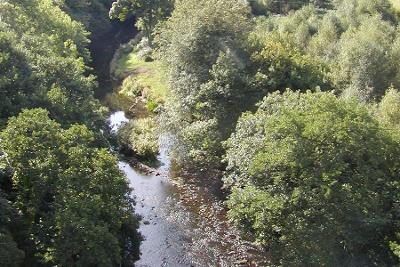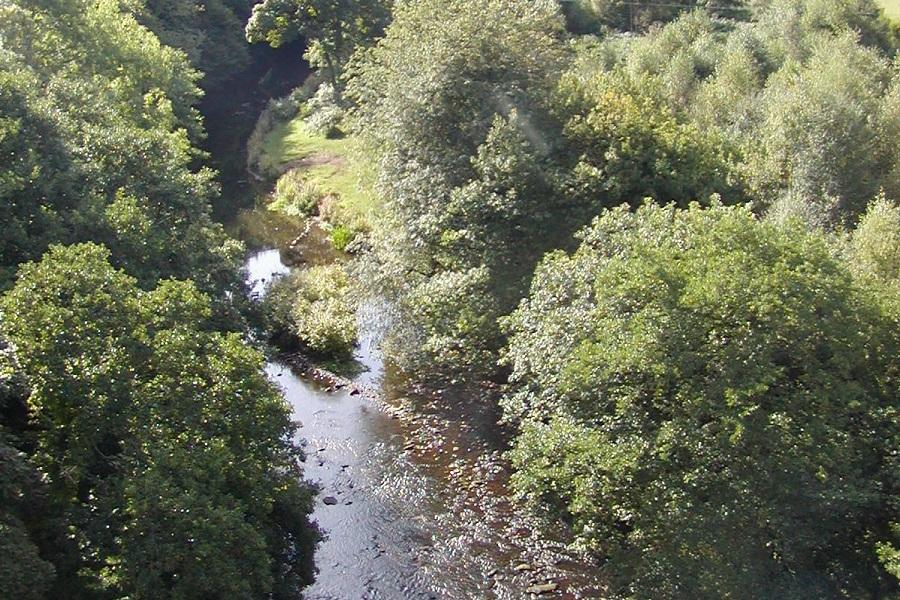Planning for Nature's Recovery

Woodlands, wildflower meadows, wetlands, birds, butterflies and mammals are among the habitats and species that will benefit from a new project to create a Local Nature Recovery Strategy (LNRS) to help boost nature in our area.
Gateshead, South Tyneside and Sunderland Councils will be working together to prepare a LNRS to cover the South of Tyne and Wear.
The South of Tyne and Wear LNRS is one of 48 in England benefiting from £14m of Government funding, to enable local communities and partners to develop a tailored nature recovery strategy for their areas.
The production of LNRSs will allow for a more strategic, coordinated and targeted approach to the creation and restoration of habitats and species populations at scale.
In addition to this, the recently announced £25 million Species Survival Fund will support projects with grants of up to £3 million to tackle habitat loss, safeguard fragile ecosystems and create more nature-rich landscapes with wildlife-friendly habitats.
LNRSs will help communities map out the action needed in their area to restore nature, enabling them to work closely with local stakeholders, from farmers and landowners, to local interest groups and school children.
Councillor John McElroy, cabinet member for the environment and transport at Gateshead Council, said: "We are really pleased to support the creation of a Local Nature Recovery Strategy for our area. This is an important step forward, to prioritise the natural world, and help with the creation, restoration and protection of habitats for our wildlife.
"This is a crucial time for the environment, and this project will be a key plank of our work to restore nature and tackle the climate crisis in the years ahead."
Councillor Claire Rowntree, Deputy Leader of Sunderland City Council, said: "Preparation of the South of Tyne and Wear Local Nature Recovery Strategy provides a real opportunity to maximise the positive impact we can all have on nature's recovery, and to integrate biodiversity more effectively into our decision-making. It also links closely to the city's carbon neutrality commitments as we seek to play our part in tackling the global challenge of climate change."
Councillor Ernest Gibson, Lead Member for Neighbourhoods and Climate Change at South Tyneside Council, said "We are delighted to be working with Natural England and our neighbouring authorities on nature conservation.
"Earlier this year, South Tyneside declared an ecological emergency, making a commitment to do whatever we can to reverse the decline in nature, to take action to restore and protect our natural habitats and support them to recover and thrive.
"This new partnership project supports us with the work we are doing to enhance our borough's natural environment as well as our climate change ambitions of becoming carbon neutral by 2030."
Natural England has a key role in supporting LNRS preparation, with senior advisors working in each of the 48 LNRS areas.
They will work with colleagues in the Forestry Commission, Environment Agency, and Defra to offer the technical expertise and scientific advice that will underpin LNRS.
Tony Juniper, chair of Natural England, said: "If we are to succeed with our national nature recovery ambitions then our efforts will need to be locally-led and based on collaboration. These will be vital elements in creating the more extensive, better quality and connected nature-rich habitats necessary for wildlife to recover and thrive.
"These local initiatives will support England's growing national Nature Recovery Network that we need to protect food and water security, capture carbon, adapt to climate change and enhance people's wellbeing."
Natural England is proud to be supporting local authorities and their partners to develop Local Nature Recovery Strategies that meet the needs of communities and the landscapes in which they live.
LNRS are tools that bring together local decision makers with communities, businesses, public bodies, farmers, and landowners to tackle the nature and climate crises.
LNRS will not only influence future nature projects, but also bring nature into other local decisions like where to build, or how to manage public open space.
Each of the 48 LNRS areas will play a part in protecting important areas for nature creating new wildlife sites, restoring river systems and peatlands, increasing woodland cover, and enhancing grasslands.
Together the 48 strategies will cover the whole of England and provide the blueprint for the creation of a thriving Nature Recovery Network across the country and support local communities and the green economy.

Woodlands, wildflower meadows, wetlands, birds, butterflies and mammals are among the habitats and species that will benefit from a new project to create a Local Nature Recovery Strategy (LNRS) to help boost nature in our area.
Gateshead, South Tyneside and Sunderland Councils will be working together to prepare a LNRS to cover the South of Tyne and Wear.
The South of Tyne and Wear LNRS is one of 48 in England benefiting from £14m of Government funding, to enable local communities and partners to develop a tailored nature recovery strategy for their areas.
The production of LNRSs will allow for a more strategic, coordinated and targeted approach to the creation and restoration of habitats and species populations at scale.
In addition to this, the recently announced £25 million Species Survival Fund will support projects with grants of up to £3 million to tackle habitat loss, safeguard fragile ecosystems and create more nature-rich landscapes with wildlife-friendly habitats.
LNRSs will help communities map out the action needed in their area to restore nature, enabling them to work closely with local stakeholders, from farmers and landowners, to local interest groups and school children.
Councillor John McElroy, cabinet member for the environment and transport at Gateshead Council, said: "We are really pleased to support the creation of a Local Nature Recovery Strategy for our area. This is an important step forward, to prioritise the natural world, and help with the creation, restoration and protection of habitats for our wildlife.
"This is a crucial time for the environment, and this project will be a key plank of our work to restore nature and tackle the climate crisis in the years ahead."
Councillor Claire Rowntree, Deputy Leader of Sunderland City Council, said: "Preparation of the South of Tyne and Wear Local Nature Recovery Strategy provides a real opportunity to maximise the positive impact we can all have on nature's recovery, and to integrate biodiversity more effectively into our decision-making. It also links closely to the city's carbon neutrality commitments as we seek to play our part in tackling the global challenge of climate change."
Councillor Ernest Gibson, Lead Member for Neighbourhoods and Climate Change at South Tyneside Council, said "We are delighted to be working with Natural England and our neighbouring authorities on nature conservation.
"Earlier this year, South Tyneside declared an ecological emergency, making a commitment to do whatever we can to reverse the decline in nature, to take action to restore and protect our natural habitats and support them to recover and thrive.
"This new partnership project supports us with the work we are doing to enhance our borough's natural environment as well as our climate change ambitions of becoming carbon neutral by 2030."
Natural England has a key role in supporting LNRS preparation, with senior advisors working in each of the 48 LNRS areas.
They will work with colleagues in the Forestry Commission, Environment Agency, and Defra to offer the technical expertise and scientific advice that will underpin LNRS.
Tony Juniper, chair of Natural England, said: "If we are to succeed with our national nature recovery ambitions then our efforts will need to be locally-led and based on collaboration. These will be vital elements in creating the more extensive, better quality and connected nature-rich habitats necessary for wildlife to recover and thrive.
"These local initiatives will support England's growing national Nature Recovery Network that we need to protect food and water security, capture carbon, adapt to climate change and enhance people's wellbeing."
Natural England is proud to be supporting local authorities and their partners to develop Local Nature Recovery Strategies that meet the needs of communities and the landscapes in which they live.
LNRS are tools that bring together local decision makers with communities, businesses, public bodies, farmers, and landowners to tackle the nature and climate crises.
LNRS will not only influence future nature projects, but also bring nature into other local decisions like where to build, or how to manage public open space.
Each of the 48 LNRS areas will play a part in protecting important areas for nature creating new wildlife sites, restoring river systems and peatlands, increasing woodland cover, and enhancing grasslands.
Together the 48 strategies will cover the whole of England and provide the blueprint for the creation of a thriving Nature Recovery Network across the country and support local communities and the green economy.
